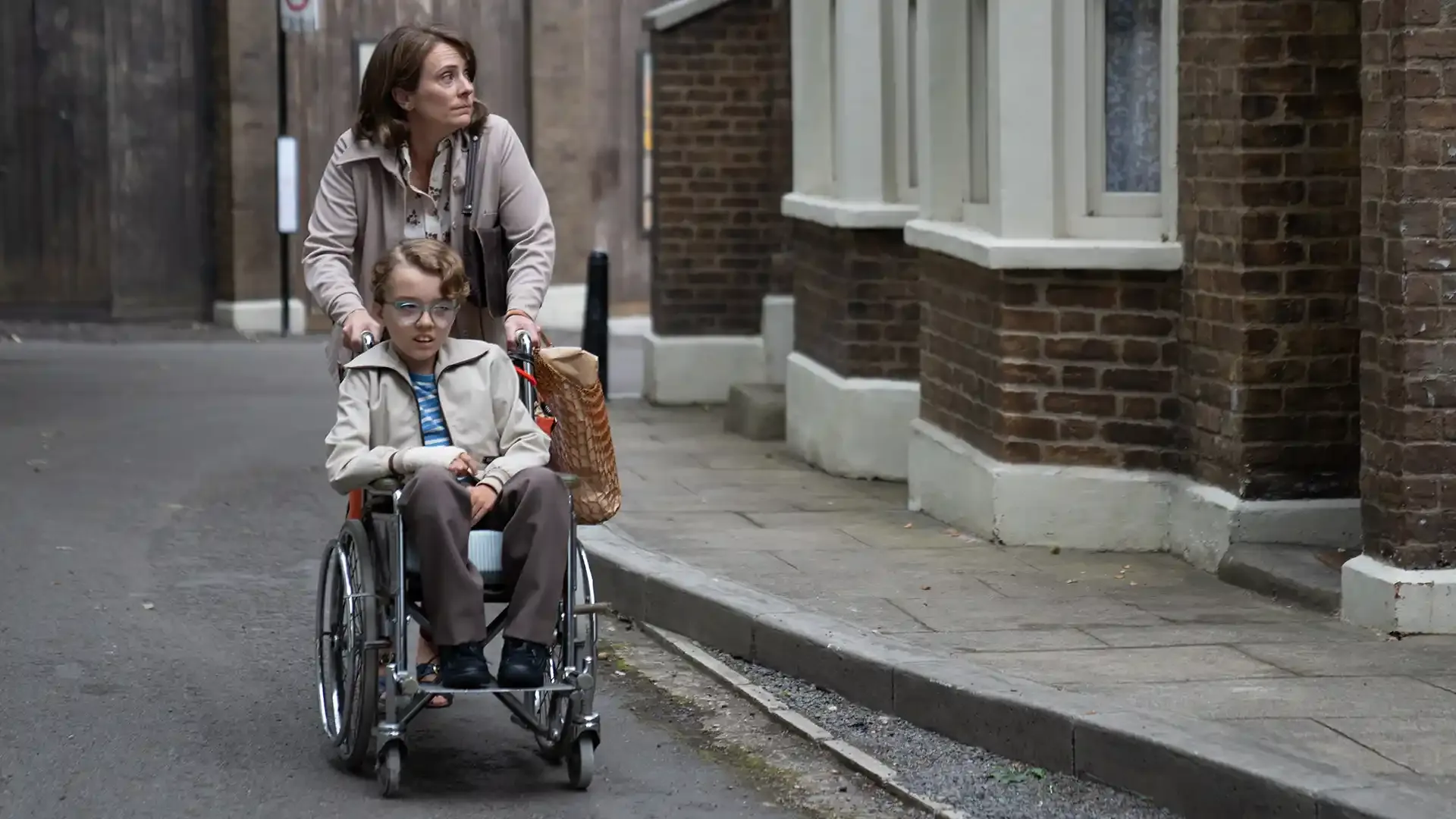I always find it especially intriguing that despite the delay in filming the season of Call the Midwife, airing first in the U.K., and then later airing in the U.S., the topics are always extremely relevant to our current timeline. This week was no different, with the Nonnatus staff discouraged that the new measles vaccine clinics were not attracting as many families as they had hoped. Measles has been on the front pages of our news outlets as we have just experienced our first two confirmed deaths from measles in the United States in 10 years.
In this week’s episode, we met Jill Trottwood, a single mother caring for her son, Andrew, who sustained brain damage after contracting measles when he was two years old. Andrew is seven years old now, he cannot walk and still wears diapers. He is what healthcare professionals would describe as “medically complex.” This does not negate the fact that Andrew’s life is just as valid and worthy as every other child’s. He is deserving of love, care, education, and support.
We recently heard some alarming remarks from the United States Secretary of Health and Human Services, Robert F. Kennedy, Jr. Although these remarks were made about children with autism, the sentiment that children with disabilities “ruin families” was heartbreaking to hear from someone with such a high standing in our government, someone who is essentially in charge of the health of our nation.
From the same man, we have heard lies about the MMR (measles, mumps, and rubella) vaccine both causing autism and being harmful in other ways. The idea that contracting measles is less harmful than receiving the MMR vaccine is now widespread, and the anti-vaccination movement has caused measles to return with a vengeance in communities where herd immunity no longer exists.
Jill made a powerful statement in front of the local school, where she and Andrew had been observing the children at play. It was clear that Andrew enjoyed being around the other children, and Jill felt compelled to encourage the other parents to vaccinate their children against measles. Andrew was proof that measles is not a harmless illness, and it can cause serious injury or death.
Did Andrew’s disabilities “ruin” Jill’s life? Well, since these characters are fictional, I am guessing as to her answer – absolutely not. Does her life look very different from what she had imagined? Absolutely. Were things more difficult, and would her life be easier if Andrew was a “typical” child? Also, yes.
The thing is, we don’t get to pick who our children are or will grow up to be when we decide to become parents. They can have different beliefs than us, and they can lead lives that we might not agree with. We certainly don’t get to decide if they will be neurotypical. We cannot protect them from all harms, but we can protect them and the greater population through recommended childhood vaccinations.
I have a confession to make: when I first became a parent, I was wary of vaccines. I put my oldest son on an “alternative vaccine schedule.” I didn’t disagree with the idea of vaccines, but it made me very nervous to give several at the same visit. I was in a lot of “attachment parenting” and natural-minded circles, and this coincided with a lot of parents who were against vaccinating their children for various reasons.
This ended up with us having to return to the pediatrician more frequently because we would only give one or two vaccines at a time, and therefore, he needed more appointments. After further discussion with my husband and our doctor, we ended up “catching” him up on vaccines around age two and continuing on the recommended schedule. We vaccinated our second and third sons on the recommended CDC vaccine schedule.
When I look back at that time, I was a vulnerable new mom and, despite being a nurse midwife, I let the opinions and fears of other parents affect my decision-making. If anything, the longer I have worked in healthcare (through a pandemic, no less), the stronger I feel about vaccinating being important for our own children, and for the greater good.
You see, I don’t think that vaccines, or any intervention for that matter, are without risk. We are at risk when we choose to drive a car to work every day. We are at risk when we exercise. We are at risk crossing the street, or riding a bike, or flying on an airplane. It’s the relative risk we need to think about when making important health decisions, though.
Are you more likely to injure yourself through exercise, or do the benefits of regular exercise outweigh that small risk? I am well aware that there are certain children who should not be vaccinated for various health reasons or due to allergies. It’s the herd immunity that is offered when all eligible people in a community are vaccinated that offers the protection to these extra-vulnerable few.
When Jill was speaking to those mothers outside of the school, I had tears in my eyes. The passion with which she spoke was breathtaking; she embodied strength and love. After that, I can confidently say that Andrew didn’t ruin her life. It’s also very possible that Jill and Andrew’s stories may have saved the lives of other children in Poplar that day.
I know my words today will be considered controversial, but after the bravery shown by Jill in this week’s episode, I had to speak up as well. Choosing to challenge misinformation about measles vaccination, even when it feels difficult, is an act of bravery that safeguards public health.
